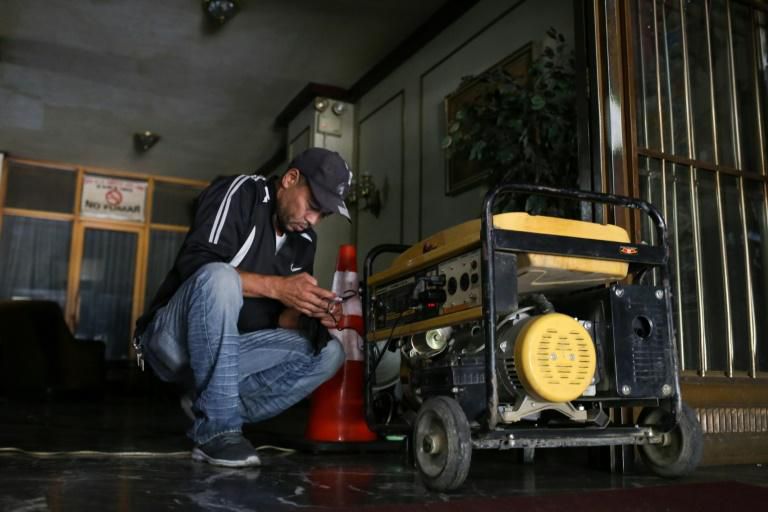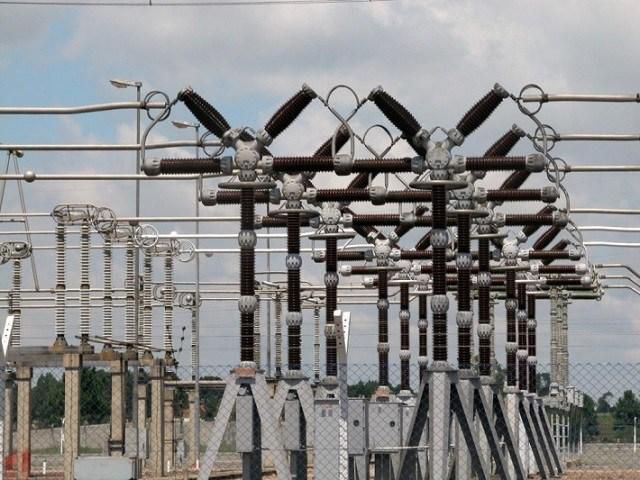If you don’t have electricity in your apartment this week, this is why
)
If you’ve been wondering why you haven’t had public power supply in your neck of the woods in the last couple of hours, it’s because the National Union of Electricity Employees (NUEE) has commenced a nationwide strike effective Wednesday, December 11, 2019.
According to one of the nation’s power distribution companies (Discos), Ikeja Electric, “the grievances of the union are directed at the federal government and the entire power sector.”
Implication: expect sustained periods of darkness in the days leading up to Christmas or even during the yuletide. It all depends on how quickly all of this is sorted out, really.
Most Discos will be downing tools until the electricity union and the federal government reach some form of agreement.

Ikeja Electric has informed its customers that it’s definitely joining the strike.
“However, due to the strike, there may be a disruption of services across the network.
“Ikeja Electric is working with the federal government and other relevant stakeholders to ensure that the industrial action is called off and there will be a resumption of services to our esteemed customers.
“All our online portals, social media handles and vending platforms remain available for our customers to access.

“Thank you for your patience and understanding,” the company adds.
A flicker of hope
If you are under the Eko Disco coverage area, you don’t have to worry about the strike, according to the company. “This is to inform you that despite the proposed nationwide industrial action by the National Union of Electricity Employees NUEE, our daily operations will continue as usual.
“This will not affect our ability to distribute electricity or receive payments through our various channels and cash offices will remain open for business. Thank you for your continued patronage and understanding,” EKEDC shared on its social media pages.
![Saleh Mamman [Taraba Facts]](https://image.api.sportal365.com/process/smp-images-production/pulse.ng/14082024/5cef8e30-b9e2-471e-92ee-388ed6b027c1)
Customers signed up to Discos outside of Lagos have plenty to worry about though.
Electricity workers are protesting unpaid salaries, pensions and allowances owed 50,000 workers of the defunct Power Holding Company of Nigeria (PHCN) before the 2013 privatization of the power sector.
Public power supply in Nigeria is an erratic, ever problematic, unreliable affair, with a nation of some 200 million people having to make do with a meager 4,000megawatts of electricity from the grid, even though the power sector has gulped--and continues to gulp--millions of dollars since the nation’s independence in 1960.
The Nigerian economy essentially runs on gas guzzling, noisy and ozone layer damaging generators of all shapes and sizes.
![Aisha blows hot on Security forces; Y7ou won't believe what she said [VIDEO]](https://image.api.sportal365.com/process/smp-images-production/pulse.ng/17082024/1f976edf-1ee2-4644-8ba1-7b52359e1a8f?operations=autocrop(640:427))
)
)
)
![Lagos state Governor, Babajide Sanwo-Olu visited the Infectious Disease Hospital in Yaba where the Coronavirus index patient is being managed. [Twitter/@jidesanwoolu]](https://image.api.sportal365.com/process/smp-images-production/pulse.ng/16082024/377b73a6-190e-4c77-b687-ca4cb1ee7489?operations=autocrop(236:157))
)
)
)
)
)
)
)
)
)
)
)